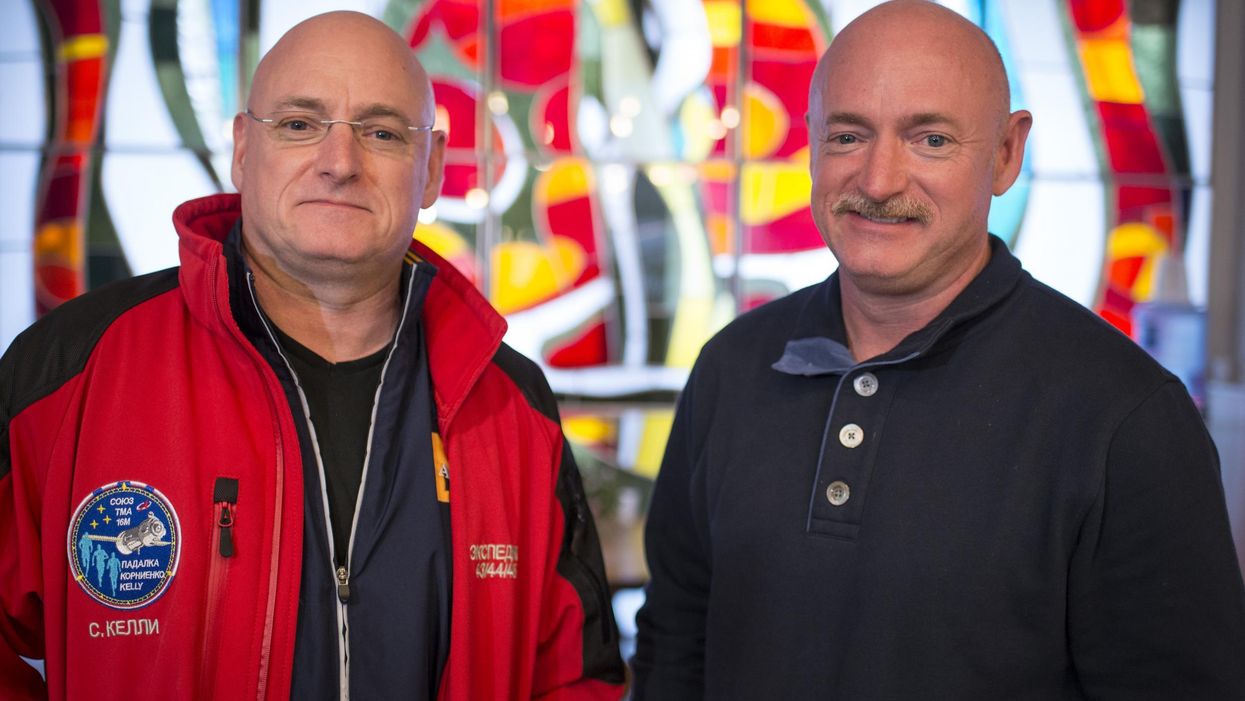News
Jessica Brown
Oct 27, 2017

Picture:
Getty / Bill Ingalls/NASA
It might not be surprising that being in outer space causes changes to our bodies - but scientists are determined to find out exactly what these changes are.
Nasa has been conducting a year-long Twin Study to see the effects being in space has on the body.
According to this research, living up there in the vast empty may speed up the process that turns our genes turn on and off.
The study’s lead investigator Chris Mason, said:
Some of the most exciting things that we’ve seen from looking at gene expression in space is that we really see an explosion, like fireworks taking off, as soon as the human body gets into space.
With this study, we’ve seen thousands and thousands of genes change how they are turned on and turned off. This happens as soon as an astronaut gets into space, and some of the activity persists temporarily upon return to Earth.
According to the U.S National Library of Medicine:
Each cell expresses, or turns on, only a fraction of its genes. The rest of the genes are repressed, or turned off. The process of turning genes on and off is known as gene regulation.
The study is not yet published, but features data on twins Scott and Mark Kelly after Scott returned from a space mission in March last year.
The ground-breaking research will also look at how space affects cognitive performance, digestion and risk of age-related disease.
HT IFL Science
More: Astronaut reveals what space smells like. It isn't good
Top 100
The Conversation (0)













